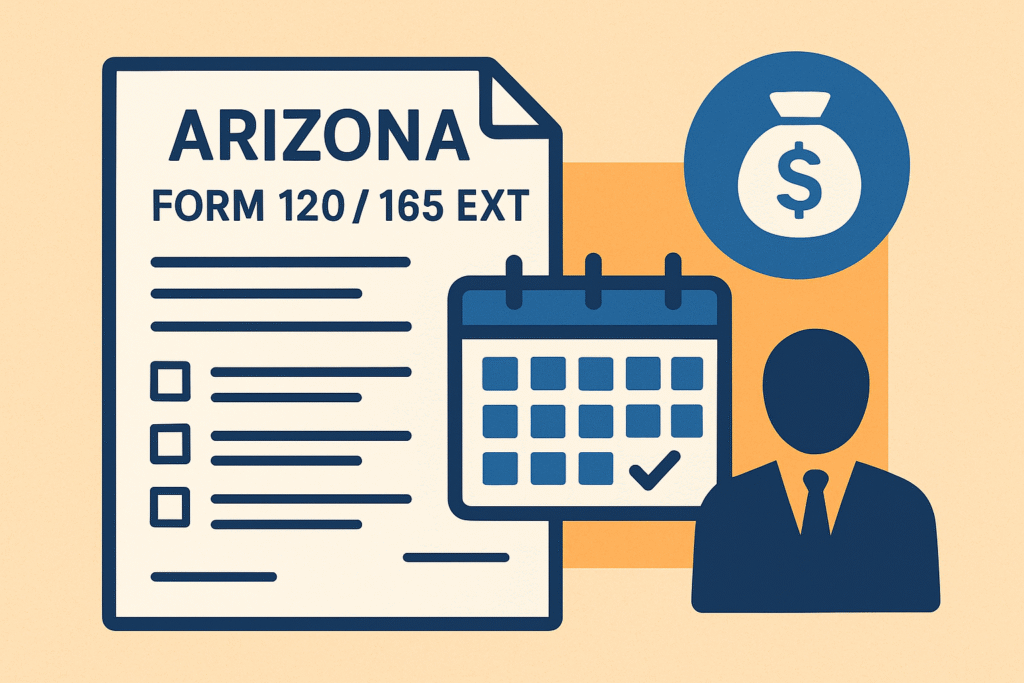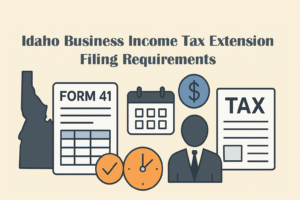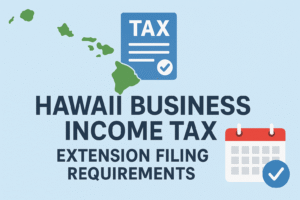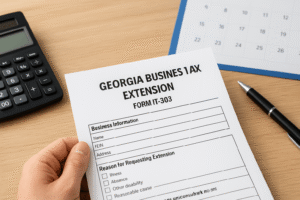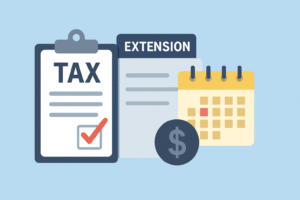When Arizona businesses can’t complete their corporate or partnership tax returns by the due date, Arizona Form 120/165 EXT provides extra time to file. However, it’s crucial to understand that this extends only the filing deadline—not the payment due date.
This comprehensive guide explains the purpose, eligibility, deadlines, line-by-line completion steps, filing methods, and mailing addresses for Arizona Form 120/165 EXT—along with frequently asked questions.
Purpose of Arizona Form 120/165 EXT
Arizona Form 120/165 EXT allows corporations, S corporations, partnerships, and certain nonprofits to obtain an automatic filing extension for their state income tax returns.
Arizona Form 120/165 EXT, officially titled “Application for Automatic Extension of Time to File,” is used to request additional time to file Arizona business tax returns such as Forms 120, 120A, 120S, 99T, 99M, or 165.
- Why the form exists: It allows taxpayers to avoid late-filing penalties by requesting extra time if more data or documentation is needed.
- What it does not do: It does not extend the time to pay taxes. All taxes must be paid by the original due date.
- Automatic approval: The extension is automatically granted if the taxpayer properly files the form and pays at least 90% of their tax due by the original deadline.
- Extension length:
- C corporations and exempt organizations: Up to 7 months
- S corporations and partnerships: Up to 6 months
In essence, this form offers breathing room for businesses to finalize their Arizona tax returns while remaining compliant with state law.
Who Must File Arizona Form 120/165 EXT
Businesses and organizations that file any of the following Arizona returns may use Form 120/165 EXT:
- Form 120: Arizona Corporation Income Tax Return
- Form 120A: Arizona Small Corporations Return
- Form 120S: S Corporation Return
- Form 99T or 99M: Exempt Organization or Medical Marijuana Dispensary Returns
- Form 165: Partnership or LLC Return (if required to file an Arizona return)
Key Notes:
- A valid federal extension form 7004 may substitute for an Arizona extension for Form 120S and Form 165, but not for Form 99M.
- Entities with a tax liability of $500 or more must pay electronically via Electronic Funds Transfer (EFT).
- If you’ve made the election to pay Arizona tax at the entity level (under the PTE rules), you may also use this form.
If your entity is any of the above and cannot file by the original due date, you should file Form 120/165 EXT.
When Is the Deadline to File Arizona Form 120/165 EXT?
The extension form must be filed or postmarked by the original due date of the return. Filing even a day late results in automatic denial.
| Return Type | Normal Due Date | Extension Period |
| Form 120 / 120A / 120S / 99T | 15th day of the 4th month after tax year end (e.g., Apr 15 for calendar year) | 6 months |
| Form 165 / 99M | 15th day of the 3rd month after tax year end (e.g., Mar 15) | 6 months |
Extended Due Dates
- C corporations / exempt organizations: Up to 7 months beyond original due date
- S corporations / partnerships: Up to 6 months
Example: If your calendar-year C corporation’s return is due April 15, the extended due date is November 15.
If you have a valid federal extension, Arizona automatically honors it for the same period.
However, any payment due to Arizona must still be submitted by the original due date.
How to Complete Arizona Form 120/165 EXT – Line-by-Line Instructions
The Arizona Form 120/165 EXT is straightforward but must be completed carefully. Here’s how to fill it out accurately:
1. Taxpayer Identification
- Enter the legal business name, address, and EIN (Employer Identification Number).
- Check boxes for name or address change if applicable.
- If filing for a fiscal or short tax year, indicate the beginning and ending dates.
2. Return Type and Tax Year
- Check the box for the applicable return: 120, 120A, 120S, 99T, 99M, or 165.
- Enter the taxable year ending date and the extended due date (6 or 7 months out).
3. Computation of Extension Payment
- Line 1: Enter total tax liability for the year.
- Line 2: Enter estimated tax payments and credits.
- Line 3: Subtract Line 2 from Line 1 (if zero or less, enter “0”).
- Line 4: Enter any electronic payment made via EFT.
- Line 5: If less than 90% of your tax has been paid, enter the amount you’re paying now to reach the 90% threshold.
Tip: You must pay at least 90% of your total tax liability by the original due date to avoid penalties.
4. Signature
The form must be signed by an authorized individual:
- Corporations: Principal officer
- Partnerships: General partner
- Nonprofits: Authorized officer or agent
Unsigned forms are invalid.
How to Make an Arizona State Tax Payment?
- Electronic Payment (EFT)
- Required if your tax liability is $500 or more.
- Pay online at AZTaxes.gov using:
- ACH Debit (e-check) – free, no registration
- Credit Card – small service fee applies
- ACH Credit – requires prior registration with Form 10366 (EFT Disclosure Agreement), filed at least 10 business days before payment.
- Foreign bank accounts must use ACH Credit.
EFT Waiver
- If electronic payment is impractical, file Form 292 (Electronic Filing and Payment Waiver Application) by December 31 prior to the tax year.
- Valid reasons include lack of internet access or computing capability.
- Penalty for not using EFT when required: 5% of unpaid amount.
Payment by Check or Money Order
- Allowed only if liability < $500.
- Make payable to Arizona Department of Revenue.
- Include EIN and tax year on the check or money order.
Tip: Payments must be made by the original due date to avoid penalties and interest. Filing the extension form alone does not extend the payment deadline.
Where to Mail Arizona Form 120/165 EXT
Mailing address depends on whether a payment is included.
If Payment Is Included:
Arizona Department of RevenuePO Box 29085
Phoenix, AZ 85038-9085
If No Payment Is Included:
Arizona Department of RevenuePO Box 29079
Phoenix, AZ 85038-9079
Tips:
- Write “Extension Request” on the envelope.
- Mail must be postmarked by the original due date.
- Keep a copy for your records; the Department does not send confirmation unless the extension is denied.
Frequently Asked Questions (FAQs)
1. Does the extension delay my tax payment?
No. It only extends your filing deadline. Taxes must still be paid by the original due date.
2. What if I pay less than 90% of my total tax due?
You’ll incur an extension underpayment penalty of 0.5% per month (up to 25%), plus potential late payment interest.
3. Can I use my federal extension instead?
Yes, if you file Form 120S (S Corporation) or Form 165 (Partnership). Not valid for Form 99M.
4. Will I receive confirmation of acceptance?
No. Arizona only returns the form if the request is denied. If accepted, you will not receive confirmation.
5. Can I mail a check if I owe more than $500?
No. Payments of $500 or more must be made electronically via EFT.
6. What is the maximum extension period?
- 7 months for C corporations and exempt organizations
- 6 months for S corporations and partnerships
7. How do I request a waiver from EFT requirement?
File Arizona Form 292 by December 31 each year to request a waiver, citing valid reasons like lack of internet or banking access.
8. Are there fees for credit card payments?
Yes. A small convenience fee applies, displayed during your payment at AZTaxes.gov.
Final Thoughts
Arizona Form 120/165 EXT provides valuable time to prepare accurate corporate or partnership tax returns. But remember — the extension doesn’t postpone tax payments, only filing. File the form on time, pay at least 90% of your tax, and submit to the correct mailing address or electronically through AZTaxes.gov to avoid penalties and ensure compliance.
For most filers, the process is quick and automatic — making it a smart move for businesses that need extra time to ensure accuracy and avoid mistakes on their Arizona tax filings.

